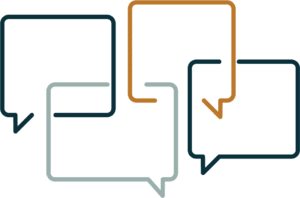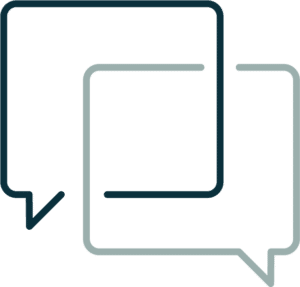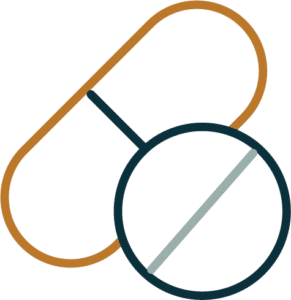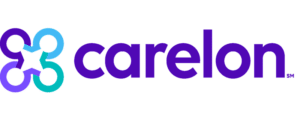Comprehensive Outpatient Mental
Healthcare, Customized to Fit Your Life

Mission Connection offers a comprehensive level of mental healthcare for those who need more than traditional, once-a-week therapy. Designed to fit seamlessly into your regular life, our flexible clinical programming is available at times that work for your schedule either in person or virtual telehealth. We provide individual, experiential, and group therapy to foster healing through the power of connection and community. Our unique therapeutic model is delivered by licensed therapists and clinicians specializing in helping our clients build tools to support lasting healing.
96% of our clients tell us they are glad they entered into care at Mission Connection.

- Licensed Professionals
- In-Person and Online
- Accepts Insurance
- Affordable Rates
Care That Meets You Where You Are
Discover Our Telehealth Program
How Mission Connection Works
Sharing Our Services State By State

Online & In-Person
Why Mission Connection
Outpatient Group Therapy

Individual Therapy

Medication Management

Clients Outcomes
Featured in
Insurance We Accept
















Frequently Asked Questions
What type of treatment is offered at Mission Connection?
Mission Connection provides multiple types of therapeutic interventions via telehealth, including Cognitive Behavioral Therapy, Dialectical Behavior Therapy, Cinema Therapy, Psycho-education Groups, Process Groups, among others.
Is Mission Connection covered by insurance?
Yes, Mission Connection networks with multiple major insurance providers and accepts most Preferred Provider Organization (PPO) insurance plans.
How much does it cost?
Upon submitting the initial form, an admissions representative will contact you regarding finances.
Is Mission Connection right for me?
Yes! For many individuals, moving into residential treatment proves difficult. Choosing to receive Mental Health support services virtually through Mission Connection offers a great opportunity to acquire valuable skills to overcome life’s challenges, all while providing flexibility in your treatment.
How long is the program?
We design our program to last a minimum of 12 weeks, with the option to extend further as needed. We take a person-centered approach and customize our care, ensuring that your treatment plan is tailored specifically to you.
Is my information protected?
Mission Connection takes every precaution to protect your information. We ensure that all the electronic resources we use comply with HIPAA and follow all federal and state guidelines.
Are the therapists licensed?
All of Mission Connection’s clinical staff hold full licenses in the states of California, Washington, and Virginia. Our staff comprises Licensed Marriage and Family Therapists (LMFT), Licensed Clinical Social Workers (LCSW), and Licensed Clinical Psychologists (Psy.D.).
Can I receive therapy online?
Yes, at Mission Connection Healthcare, we provide online therapy services, enabling you to receive mental health support from the comfort of your own home. Our secure telehealth platform ensures confidential and convenient therapy sessions.
Where does Mission Connection Healthcare provide services?
Mission Connection Healthcare offers services in California, Washington, and Virginia. We have locations in these states to ensure accessibility and convenience for our clients.
What can I expect during my first therapy session?
During your first therapy session, your therapist will conduct an initial assessment to better understand your concerns, goals, and treatment needs. This session provides an opportunity for you to discuss your symptoms and develop a plan for moving forward in treatment.
How will I communicate with my therapist?
Mission Connection integrates psychiatric services, group sessions, and individual sessions to offer a comprehensive range of therapeutic experiences for you. All sessions take place through a HIPAA-compliant custom portal powered by Zoom.
Where can I explore additional Mental Health resources?
- National Alliance on Mental Illness (NAMI) – Provides education, support, and advocacy for individuals and families affected by mental health conditions. Link: https://www.nami.org/
- Substance Abuse and Mental Health Services Administration (SAMHSA) – Offers resources for mental health and substance use disorders, including treatment locators and educational materials. Link: https://www.samhsa.gov/
- American Psychological Association (APA) – Provides information on mental health topics, therapy, and finding qualified psychologists. Link: https://www.apa.org/
- Mayo Clinic – Offers comprehensive information on various mental health conditions, treatment options, and lifestyle strategies for managing mental well-being. Link: https://www.mayoclinic.org/
- Psychology Today – Features articles, therapist directories, and resources on mental health, therapy, and self-care. Link: https://www.psychologytoday.com/
- Anxiety and Depression Association of America (ADAA) – Provides resources, support, and information on anxiety, depression, and related disorders. Link: https://adaa.org/
- Centers for Disease Control and Prevention (CDC) – Offers mental health resources, including information on coping with stress and promoting mental well-being. Link: https://www.cdc.gov/mentalhealth/index.htm









